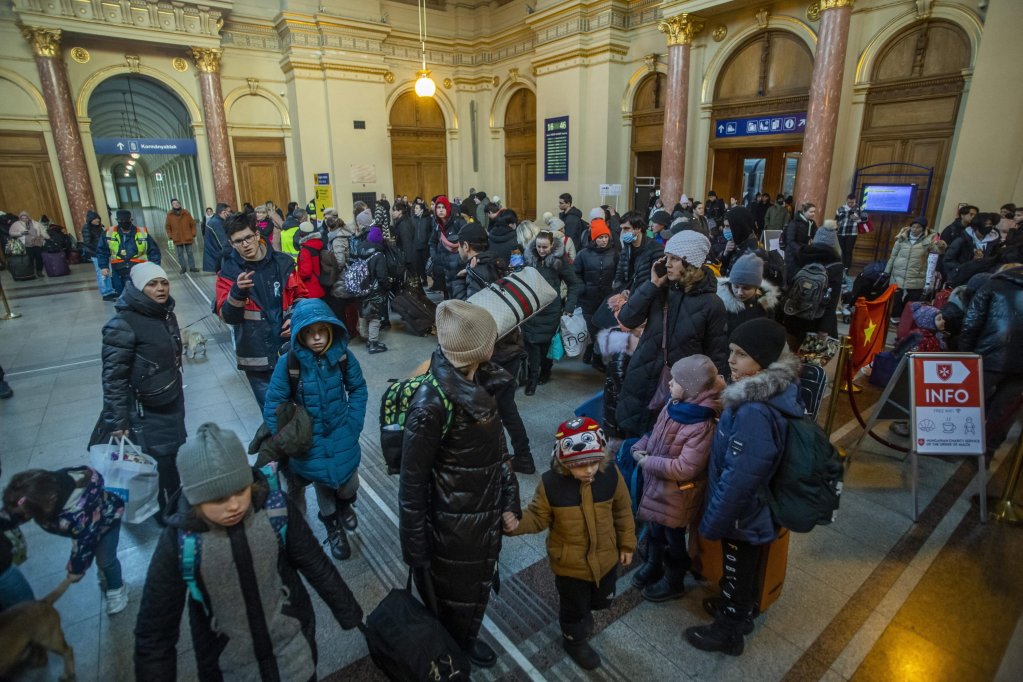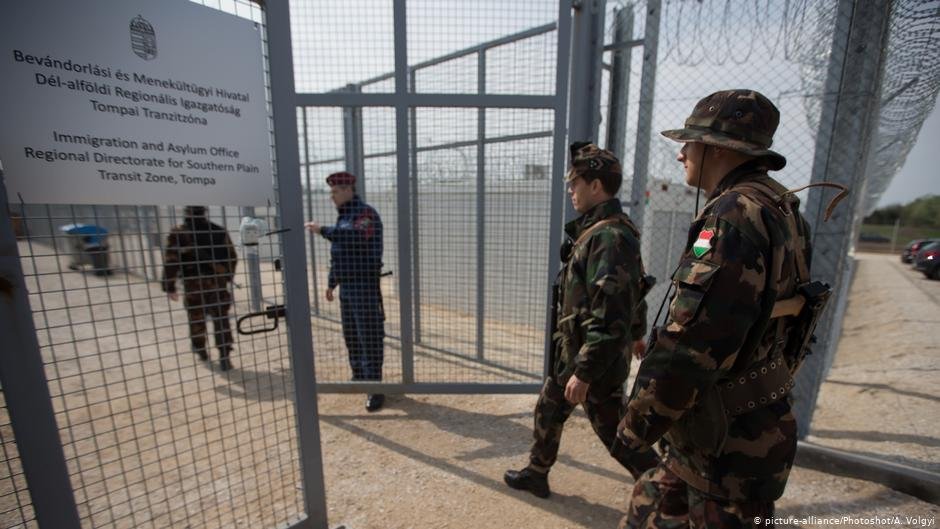Anti-immigrant Hungary struggling to accommodate Ukrainian …
Civil society and rights groups in Hungary say the system is failing Ukrainian refugees. The criticism comes ahead of a meeting between Pope Francis and President Orban. Talks between the Pope and Hungary's leader Viktor Orban this weekend in Budapest are expected to be dominated by two topics: migration, and the war in Ukraine.
Speaking about the upcoming visit, the Pope last Sunday referred to the "movement of so many people (which) has put urgent humanitarian issues on the agenda." His views on migration are known to differ widely from those of Orban[1], who has said repeatedly that he does not want Hungary to be transformed into an "immigrant country." Against the backdrop of his government's strong anti-immigration agenda, critics say that refugees from Ukraine who have fled to Hungary are also facing a system that is geared against them. From stuggling to find accommodation to getting a school place for their children, civil rights groups say Ukrainians are dealing with significant obstacles.
Since the Russian invasion over a year ago, more than a million Ukrainian refugees have crossed the Hungarian border, with hundreds of thousands more also entering via neighboring Romania, according to figures from the Hungarian Border Police. But of the Ukrainians to arrive in Hungary since February 2022, only around 35,000 have applied for temporary protection status there, far fewer than in almost every other EU country in per capita terms. By contrast, more than 504,000 have registered for protection in Czech Republic, which is only slightly bigger than Hungary in terms of population.
The Czech interior minister, Vit Rakusan, recently said his country had been able to take in half a million Ukrainian refugees[2] "without crashing or overburdening our health and education systems," adding: "We have a system that works."
 From file: Refugees from Ukraine arrive at the Keleti Railway Station in Budapest, Hungary, 7 March 2022 | Photo: EPA/ZOLTAN BALOGH
From file: Refugees from Ukraine arrive at the Keleti Railway Station in Budapest, Hungary, 7 March 2022 | Photo: EPA/ZOLTAN BALOGH
Hungary under pressure
Hungary's government last month announced an extension of temporary protection status, which gives Ukrainians the right to stay legally in Hungary, work, rent accommodation, go to school and access health services, until March 2024. The Hungarian government has also said it is committed to continuing support for people fleeing Ukraine, but that the influx has put pressure on the country, already impacted by economic problems such as inflation and rising energy costs. Some activists in Hungary say that the support system is unable to accommodate the refugees.
As a result, many self-help groups have sprung up in the country, according to the AFP news agency. One such group, called 'Unity', pools job opportunities, helps refugees with translation, and supports parents by running a children's daycare in a converted sports center donated by a district municipality, AFP reports. "We are grateful for the help we receive from Hungarians, but we need to help ourselves," Dina Biktagirova, a 40-year-old Ukrainian, during her Hungarian lesson, told the news agency.
 From file: Mohammed, Alona and their children, Kamila, 3, and Yassine, 11 months, arrive in Budapest on March 6, 2022, after fleeing Charkiv, Ukraine | Photo: InfoMigrants
From file: Mohammed, Alona and their children, Kamila, 3, and Yassine, 11 months, arrive in Budapest on March 6, 2022, after fleeing Charkiv, Ukraine | Photo: InfoMigrants
Left to their own devices
Aniko Bakonyi, from the Hungarian Helsinki Committee (HHC), says that the needs of Ukrainian refugees in Hungary have become more complex. With many now in their second year since fleeing, the kinds of support they need include long-term housing, schooling, and trauma therapy.
"But non-state actors like municipalities or hostel managers who help are often left to their own devices," she told AFP. In Budapest, one shelter is now closing after its funding channelled through the Hungarian Red Cross was cut, with its 60 Ukrainian residents moving to a cheaper provincial city, according to the manager, Bohdana Kokhanyuk. "It feels like Hungarian society is not really welcoming," she told AFP. "People who don't speak Hungarian... have to find flats by themselves.
Also as soon as landlords hear a tenant is a Ukrainian refugee they often put the phone down."
 From file: Hungary's controversial transit zones along the Serbian border are policed by military units | Photo: picture-alliance/Photoshot/A. Volgyi
From file: Hungary's controversial transit zones along the Serbian border are policed by military units | Photo: picture-alliance/Photoshot/A. Volgyi
Greater problems for non-Ukrainian migrants
While people fleeing Ukraine are facing obstacles to their longer-term needs in Hungary, for non-Ukrainian asylum seekers and Ukrainians who arrived in Hungary prior to the war, the system is even more difficult.
Since 2020, after the EU forced the Hungarian government to close its so-called border transit zones[3], asylum applications are only accepted at Hungarian embassies abroad. Also read: Report: In Italy, Mediterranean refugees treated worse than those from Ukraine[4] The HHC's Bakonyi told AFP that this has reduced the number of asylum seekers to almost none, and led to the refugee support system in Hungary being "demolished".
The European Commission has said that the embassy procedure is in breach of EU law. Hungary also continues to violate human rights laws by expelling migrants to Serbia[5]. The HHC recently highlighted cases[6] of Afghan nationals fleeing the taliban who have been denied access to the asylum procedure or pushed back across the Hungarian-Serbian border.
With AFP, Reuters
References
- ^ those of Orban (www.infomigrants.net)
- ^ half a million Ukrainian refugees (www.infomigrants.net)
- ^ close its so-called border transit zones (www.infomigrants.net)
- ^ Report: In Italy, Mediterranean refugees treated worse than those from Ukraine (www.infomigrants.net)
- ^ expelling migrants to Serbia (www.infomigrants.net)
- ^ HHC recently highlighted cases (helsinki.hu)